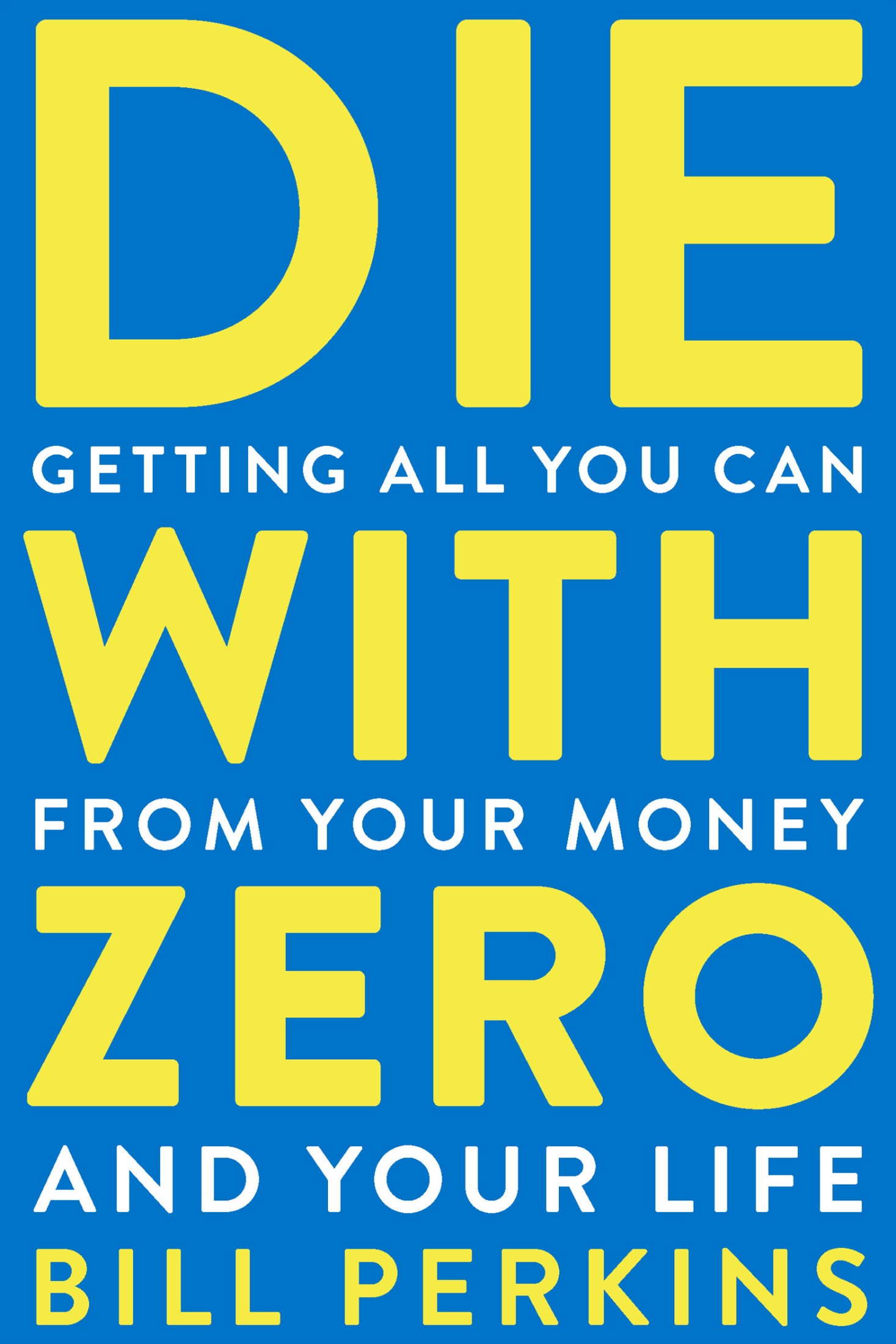Highlights from Die with Zero by Bill Perkins

Highlights from this book
-
Wealthy people obviously aren’t the only ones afraid of running out of money: It’s a fear I heard about over and over from people who’d heard my ideas. So you’ll see me addressing this fear throughout the book. After all, nobody would ever try to die with zero if they’re afraid they’ll hit zero before they die.
-
But let’s say you’re not part of the vast majority—let’s say you’re worth millions or tens of millions. What then? Even if I earn enough that I could save up for a few extra months of life in the hospital, I can’t see the logic in doing that: There’s a big difference between living a life and just being kept alive, and I’d much rather spend on the former. So I will not work for years to save up for a few more months on a ventilator with a quality of life that’s close to zero—or, depending on the level of suffering, maybe even negative. So instead of engaging in “precautionary saving,” as economists call the practice, I’ll let the cards fall where they may. We all die sooner or later, and I’d rather die when the time is right than sacrifice my better years just to squeeze out a few more days at the tail end.
-
So it’s fine to look at your life expectancy, to consider your risk tolerance, and to do the math to figure out how many years you need to save for. But that’s not the same as being so frightened of outliving your money—or of the thought of death—that you avoid even looking at the numbers. If you live your life with fear and avoidance, my bet is you will either fritter your money away or play it so safe that you will leave many, many years of your hard-earned money behind—so you’ll be working many years as a slave to your own fears.
-
Like all living creatures, humans have evolved to survive. Of course, we want to do more than just survive; for example, I’m sure if I asked you if you want to survive or really thrive, you’d choose thriving. But our biology is such that efforts to live the best life we can often don’t come as naturally or as strongly as the basic instinct to survive. Avoiding death is our number one priority, and that single goal dwarfs everything else.
-
The upshot of all this is that if you wait until you die to have your children inherit your money, you’re leaving the outcome to chance. I call it the three Rs—giving random amounts of money at a random time to random people (because who knows which of your heirs will still be alive by the time you die?). How can randomness be caring? It’s the opposite of caring: Being okay with leaving all these outcomes to chance means you evidently don’t care if you spend years of your life working for future random people, and it means you may not care how much the people closest to you will actually get, or when.
-
for people who are older than me—my mom and my sister and my brother. That made me think: What about now? Do I want to give anything now, when they can enjoy those gifts more than later? My answer was yes, so I gave them that amount. In short, by giving the money to my kids and other people at a time when it can have the greatest impact on their lives, I’m making it their money, not mine. That’s a clear distinction, and I find it liberating: It frees me to spend to the hilt on myself. If I want to spend like mad, I can do it without worrying about the effect on my kids. They have their money to spend as they wish, and I have mine.
-
“Your salary will only go up, your earning power will only go up,” Levitt recalls his older colleague telling him, in almost a perfect echo of what Joe Farrell told me. “And so you shouldn’t be saving now, you should be borrowing. You should be living today in much the way that you’ll be living in 10 or 15 years, and it’s crazy to actually be scrimping and saving, which is what at least someone like me who was brought up in a middle-class family was taught to do.” Levitt says this was one of the best pieces of financial advice he ever got.
-
My point—and this is important—is that the day I die and the day I stop being able to enjoy certain experiences are two distinctly different dates. And this is true for everyone. That is what I mean when I say that we die many deaths in the course of our lives: The teenager in you dies, the college student in you dies, the single unattached you dies, the version of you that’s a parent of an infant dies, and so on. Once each of these mini-deaths occurs, there’s no going back.
-
so be sure you’re making those choices deliberately.
-
I’ve given you an impossible task: to die with zero. You can follow every rule in this book, you can closely track your health and life expectancy, and you can recalculate your financials every day—yet you’re not going to hit exactly zero. When you take your last breath, you might still have a few dollars in your pocket, and maybe even hundreds more in the bank. So technically, you will have failed to die with zero. That’s inevitable—and it’s okay. Why? Because that goal will have done its real job, of pushing you in the right direction: By aiming to die with zero, you will forever change your autopilot focus from earning and saving and maximizing your wealth to living the best life you possibly can.